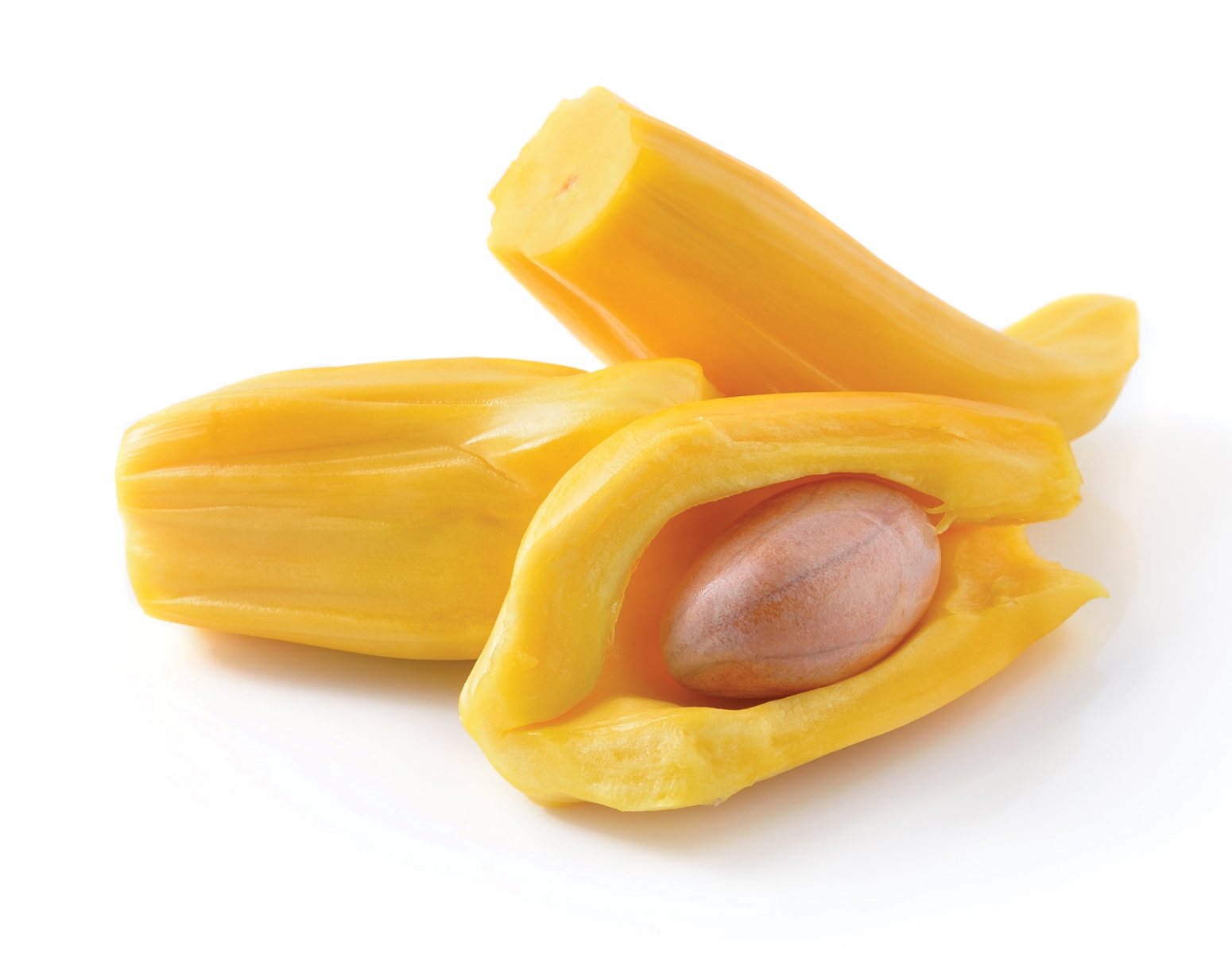Move over, kale. If the chatter in the blogosphere is any indication, jackfruit could become the next big superfood.
Tree Fruit King
Jackfruit is the fruit of a tree (Artocarpus heterophyllus) thought to be native to south India. And it’s huge; a single jackfruit can reach up to 40 kilograms, making it the world’s largest tree-borne fruit.
Grab a Can
Jackfruit is covered in thick, spiky green skin and contains up to 500 large, edible seeds that are enclosed within bulbs of yellow flesh. Ripe jackfruit emits a pungent, almost putrid odour and a sticky sap when cut. Needless to say, it’s labour-intensive and messy to process, so canned jackfruit is easiest for home chefs. Occasionally you can find pieces of fresh jackfruit at Asian supermarkets.
Check the Label
Canned jackfruit is sold in water, brine or syrup. Brined jackfruit is high in salt, while jackfruit in syrup is high in sugar – pay attention when you’re buying it and choose the type that works best for your recipe. Earth’s General Store sells cans of both certified organic and non-organic jackfruit packed in water, to leave the seasoning up to you.
Meat Mimic
While relatively unknown in North America, jackfruit is popular amongst vegetarians and vegans as a great meat analogue, as it has a chewy texture and a neutral flavour that readily melds with sauces and marinades. “Whatever gives you that tactile chewiness in your mouth – people like that,” says Michael Kalmanovitch, owner of Earth’s General Store. He notes that the most common western preparation of jackfruit is a vegetarian version of pulled pork, as cooked jackfruit can be shredded similarly to pork.
Miracle Crop?
It may not have made the list of superfoods yet, but many experts argue that jackfruit could be instrumental in global food security. The flesh is a good source of vitamin C, while the seeds are rich in protein, potassium, calcium and iron.
Cheap and Easy
The best reason to give jackfruit a try? It’s cheap. “Unlike some other analogues – manufactured, synthetic meat substitutes – pound for pound, it’s an incredibly inexpensive meat-like product,” Kalmanovitch says. He also points out that it’s not processed (other than being cleaned and sliced), unlike tofu, seitan and many other vegan meat alternatives.
